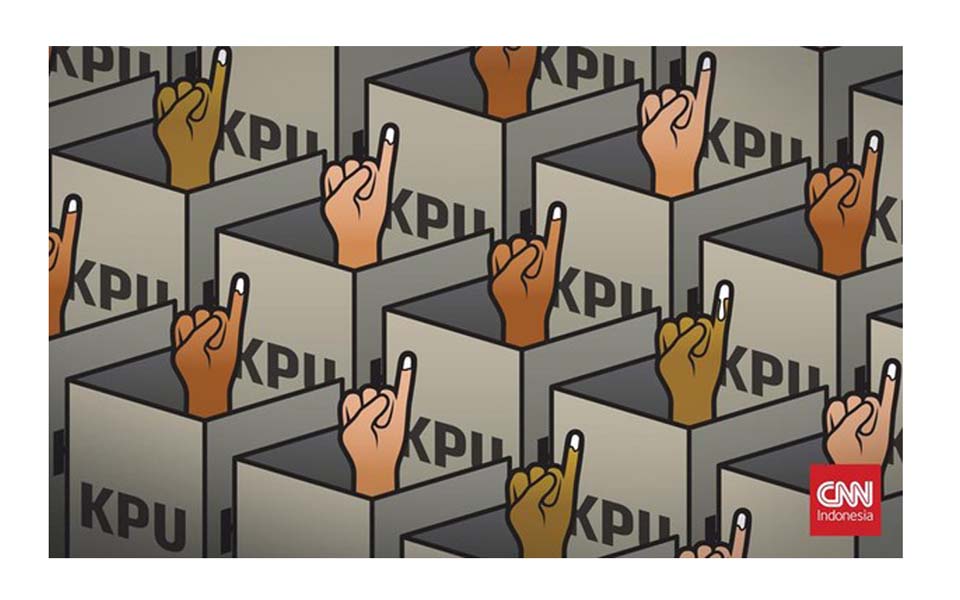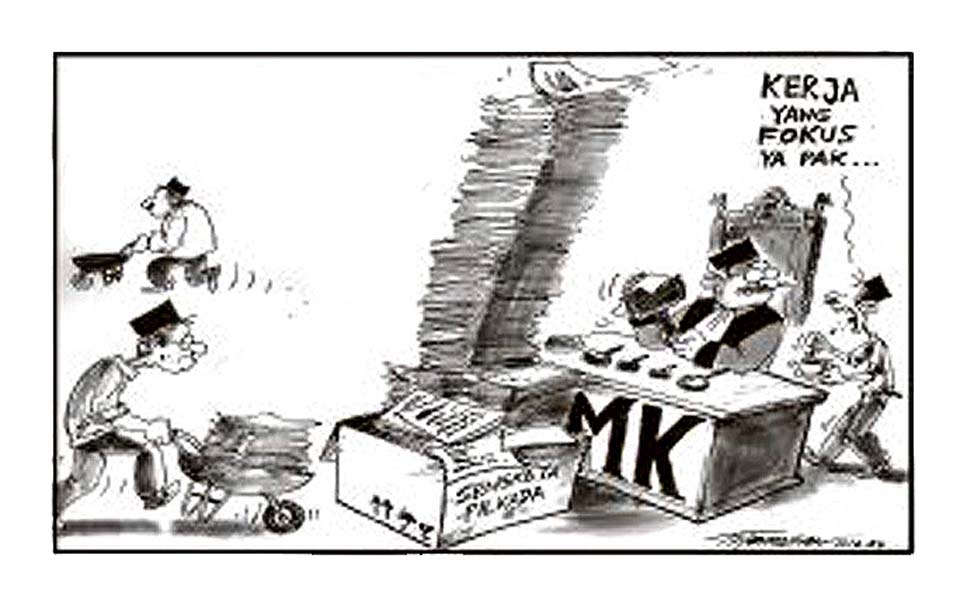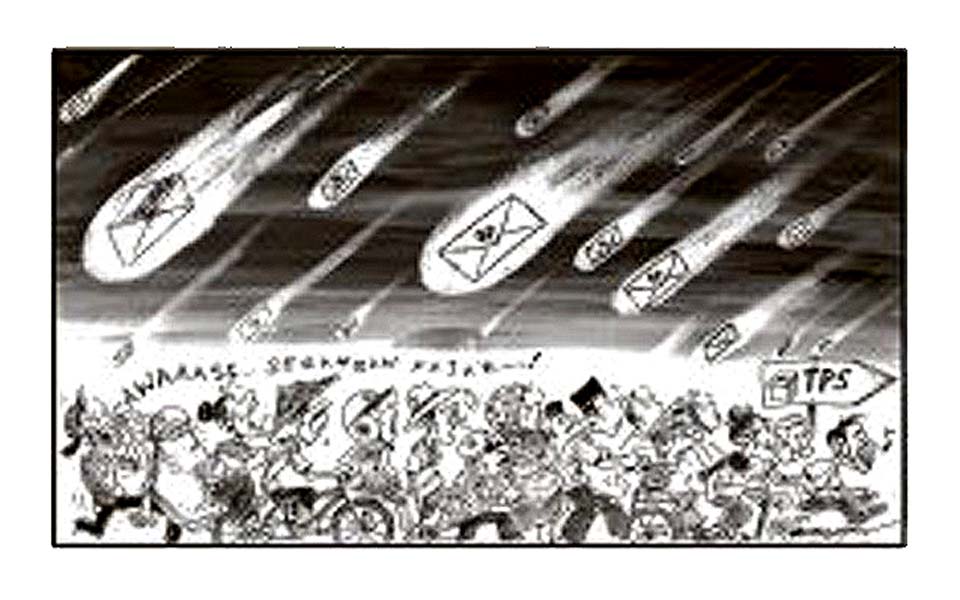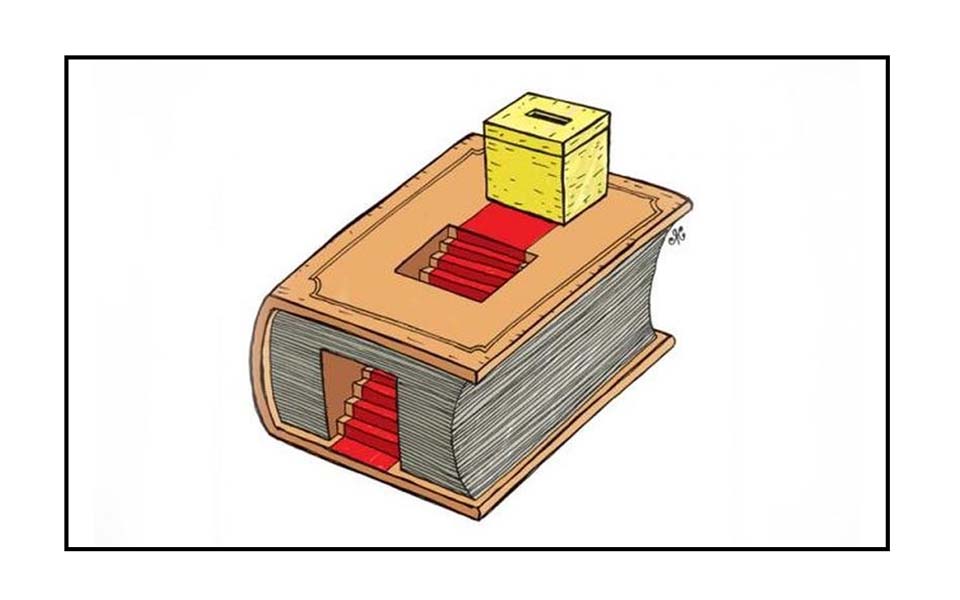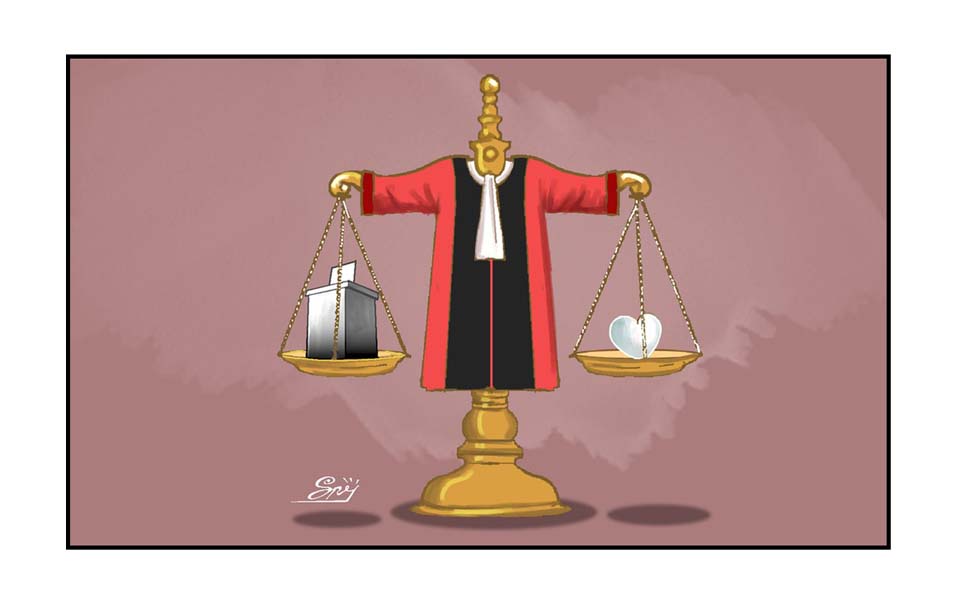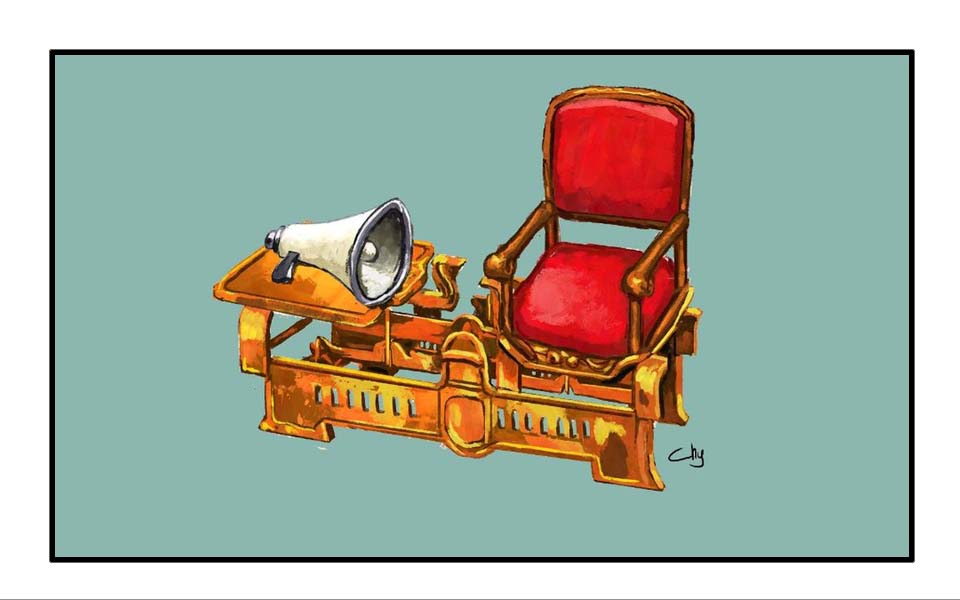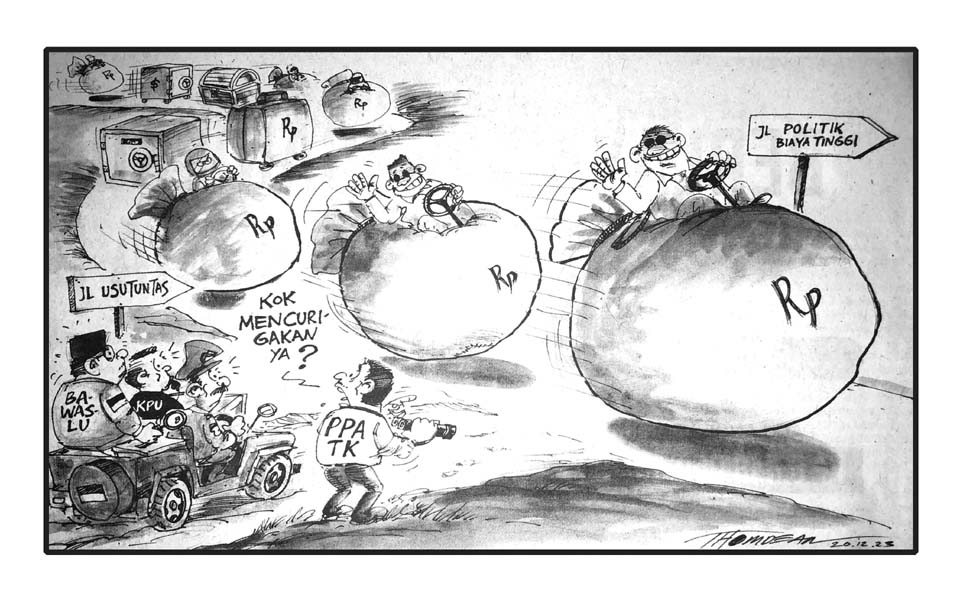
Man with PPATK (the anti-money laundering agency) on shirt: It's a bit suspicious isn't it?
Signs read "Fully investigate road" and "High political costs road".
Ahead of the 2024 legislative and presidential elections, the problem of high political costs in Indonesia has again come to the fore.
The February 14 elections will see some 9,917 candidates vying for seats in the national House of Representatives (DPR) from the 18 political parties who will be contesting 84 electoral districts across the country.
There will also be candidates running for provincial, regional and municipal legislative councils and the Regional Representatives Council (DPD).
While the open-list proportional election system gives voters the opportunity to directly elect legislators rather than having to choose from a political party slate, prospective legislators still need party endorsement to run. Popularly known as "mahar" or "bride price", this can run into the millions or even billions of rupiah.
This is even before calculating in the coast of campaign materials such as banners and flags, campaign events, free handouts of basic commodities and large amounts of money allocated for "envelopes" to be given to prospective voters prior to or on voting day.
And while the General Elections Commission (KPU) and the Election Supervisory Body (Bawaslu) are tasked with dealing with such cases, money politics remains rampant and is considered by many to just be part of the course.
According to the University of Indonesia Economics and Society Research Institute, in 2014, prospective DPR members had to spend between 1.1 and 4.46 billion rupiah.
Meanwhile, a study by the Corruption Eradication Commission (KPK) found that prospective legislators had to pay amounts ranging from 1 billion to more than 5 billion rupiah.
These huge amounts are reflected in the flow of large sums of money in the lead up to elections. The Financial Transaction Reports and Analysis Center (PPATK) has identified suspicious financial transactions from more than 6,000 accounts belonging to managers of parties contesting the 2024 elections or prospective legislators amounting to a massive 51.4 trillion rupiah.
The need for funds to garner votes in increasingly transactional elections means less opportunity for quality legislators to be elected. Conversely, it increases the possibility of corruption by elected candidates keen to recover their "investment" as quickly as possible.
This is reflected in the many corruption cases over the last few years involving legislators. In a speech in Jakarta on December 12, President Joko "Jokowi" Widodo revealed that between 2004 and 2022, some 344 members of national and local parliaments had been arrested for corruption.
And in the long term, these high political costs make it more difficult for people of high quality who do not have access to funds to take part in elections.
As a result, the DPR, which determines the future of the ordinary people through the laws it makes, is increasingly made up of mediocre politicians backed by large amounts of capital whose interests have little in common with the people who voted for them.





